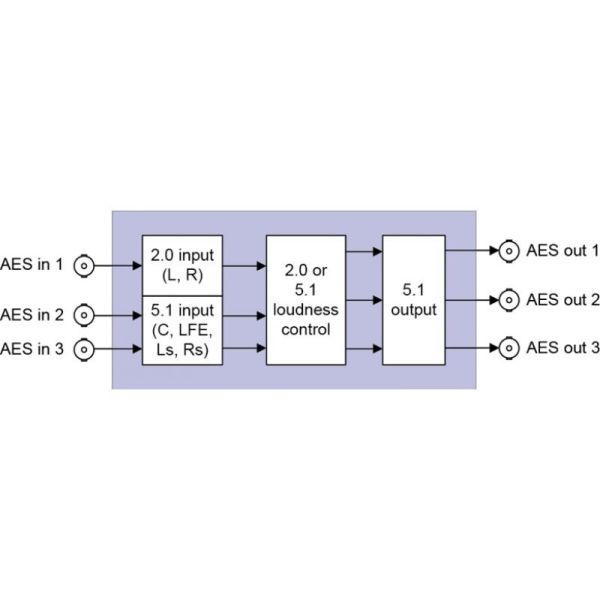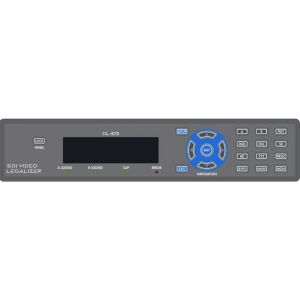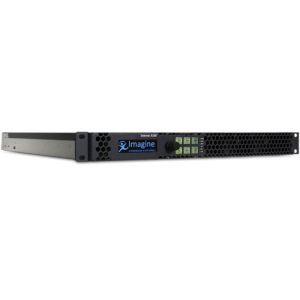Imagine SELOPT-ADVAUD ADVANCED AUDIO PROCESSING SUBMODULE; APM...
Imagine SELOPT-ADVAUD ADVANCED AUDIO PROCESSING SUBMODULE; APM (Audio Processing Module) plug-in advanced audio processing for FS, XD (requires software key license option(s))
APM (Audio Processing Module) plug-in advanced audio processing for FS, XD (requires software key license option(s))DTS Neural Loudness Control answers the need of TV broadcasters and network operators to manage perceived loudness levels within a specific desired volume range. Unlike traditional volume management solutions, this innovative system uses the DTS Neural Technologies perceptual loudness measurement tool to model how the human ear will perceive the loudness of the audio content. This process accounts for many variables that can affect how audio is perceived, including spectral and density differences, and temporal overlaps. By accounting for the human experience of listening, DTS Neural loudness measurement accommodates both stereo and multichannel audio equally well.
Features
- ITU-BS 1770 compliant
- Real-time measurement and control of loudness from the broadcast facility guarantees a consistent viewer experience, independent of consumer equipment
- Uses a perceptual hearing model to accurately measure loudness and not traditional intensity-based means such as RMS or SPL, to achieve much more accurate and natural correction
- Works equally well with stereo (2.0) and multichannel (5.1) program audio content, supporting any stereo format (2.0, LtRt, LoRo, LwRw) and any multichannel/surround mixes
- Manages loudness without creating a squashed or compressed sound and with no negative impact on sound signature
- Correction of greater than ±12dB without hearing any audible cues indicating that the original content was anything but perfect
- Manages loudness while shaping the sound signature to preserve a loud or quiet spectral balance
- Uses advanced psychoacoustic and signal processing technology to accurately detect and regulate the perceived loudness of 2.0 and 5.1 sources; this is something that can’t be accomplished with traditional intensity-based volume control solutions
- Available for the Selenio MCP, Selenio 6800+, X100 and X50 processing platforms
Details
After measurement, DTS Neural Loudness Control applies appropriate gain or attenuation to achieve the desired target loudness level (Dial Norm). The correction process preserves the spectral balance of the original signal by adapting the frequency response of the low and high frequencies to compensate for level differences within the original signal. DTS Neural Loudness Control can be used in a protection role that only affects content that falls aggressively outside the desired target or in a management role to tightly control loudness and guarantee intelligibility without the distracting side effects of traditional volume management solutions.
The Selenio 6800+ platform includes the all-in-one APM6803+ and DAPM6802+ Advanced Audio Processing modules.
There is a plug-in option available for adding the loudness control to the Selenio X50 and Selenio X100 video and audio processors.
The Selenio Media Convergence Platform supports DTS Neural Loudness Control as well.
Specifications
Specifications and designs are subject to change without notice.
| Sample Rate | 32 to 48 kHz (AES/EBU, wordclock-slave) |
| Number of Available Channels | Depending on configuration, up to 4 AES3 input (stereo) and 4 AES3 output (stereo) |
| Manufacturer | Imagine Communications |
|---|









